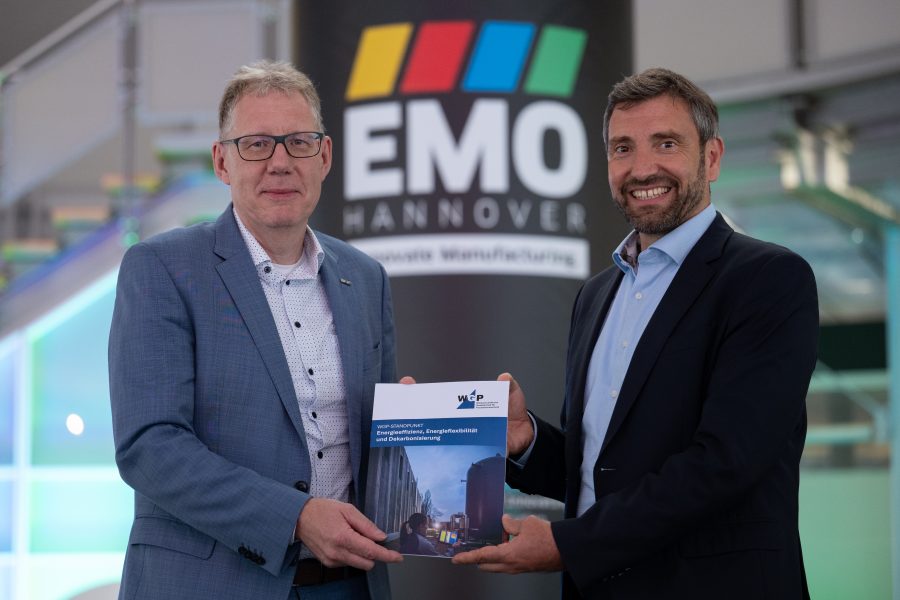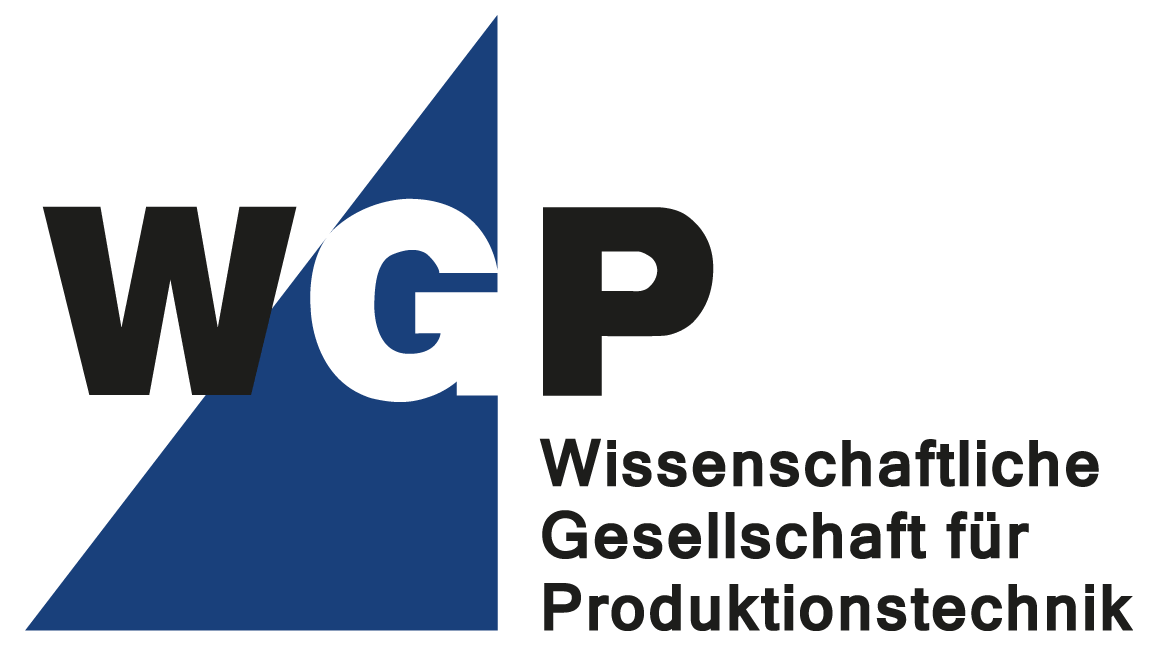
Frankfurt, 2 October 2025 – How can companies save energy in the short to medium term? ‘There are many solutions, and some are real “low hanging fruits”. However, they are often not yet well known,’ says Prof. Matthias Weigold, one of the main authors of the new WGP position paper ‘Energy Efficiency, Energy Flexibility, Decarbonisation’.
At EMO Hannover 2025 last week, he presented a hot-off-the-press guide for industry and politics to Dr Markus Heering, Managing Director of the VDW (German Machine Tool Builders’ Association). The professors in the WGP combine unique expertise in production technology, ranging from machines, process chains and factory buildings to cross-sector potential. Up to 40 per cent of energy can be saved – in some cases with relatively inexpensive measures.
For many years, WGP has been conducting research into energy transparency and efficiency, but also into energy flexibility – a topic that has long been neglected. ‘The energy transition in Germany would have gained much more momentum and our industry would have suffered much less from the energy crisis following Russia’s war of aggression against Ukraine if, in addition to the expansion of renewable energies, politicians and industry had also focused on making energy demand more flexible,’ says Weigold. ‘With SynErgie, a large Kopernikus project funded by the German government, we have been able to demonstrate together with many partners that companies can respond flexibly to the volatile supply of renewable energies. Various measures, such as energy-conscious production control, offer great savings potential for industry.’ Cross-sector solutions have not yet really caught on in the minds of companies. Here, a kind of ecosystem could be developed in which industry, commerce, residential areas and vehicles jointly use and exchange the various energy sources in the environment.
Markus Heering also sees great potential in the validated solutions and an urgent need for local industry to become less dependent on high prices, global competition and geopolitical uncertainties in terms of energy: ‘The WGP position paper provides a basis on which we can build joint actions to make SMEs in particular more competitive in the face of high energy prices.’
Download:
Position paper ‘Energy efficiency, energy flexibility, decarbonisation’ (EED)
Featured image: Presentation of the WGP position paper ‘Energy efficiency, energy flexibility, decarbonisation’ to Dr Markus Heering, Managing Director of VDW, at EMO Hannover 2025, 24 September 2025 (from left to right): Dr Markus Heering (VDW), Prof. Matthias Weigold (PTW Darmstadt); Source: Deutsche Messe / Rainer Jensen
Image 2: Members of the WGP present the position paper at the CIRP General Assembly in Stockholm at the end of August (from left to right): Prof. Christian Brecher (WZL Aachen), Prof. Christoph Herrmann (IWF Braunschweig), Prof. Michael Zäh (WGP President, iwb Munich), Prof. Matthias Weigold (PTW Darmstadt), Prof. Jürgen Fleischer (WGP Vice President, wbk Karlsruhe), Prof. Rüdiger Daub (iwb Munich); Source: PTW / TU Darmstadt
